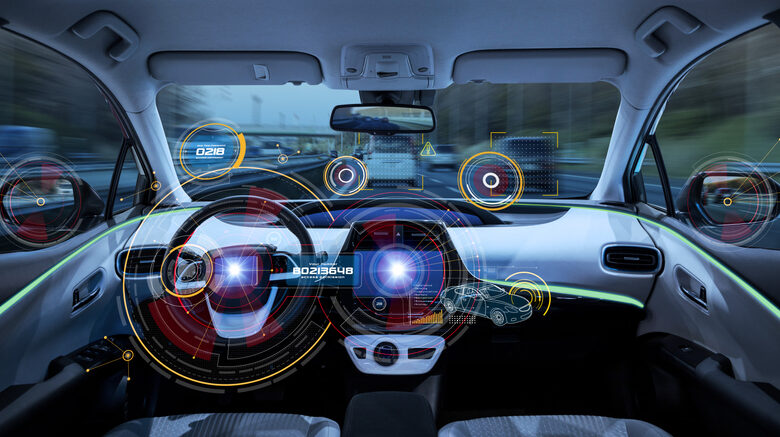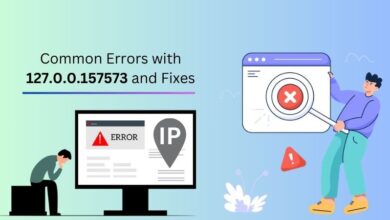Impact of Data and AI on Changing the Automotive Industry

AI helps companies streamline production processes and make vehicles more efficient. For example, it can detect equipment failure and prevent accidents. It can also provide data on maintenance schedules and supply chain optimization. Automakers are using AI to create personalized infotainment systems for drivers and passengers. Customer loyalty and satisfaction may increase as a result.
Predictive Maintenance
Unlike standard automation tools, AI can make predictions about future events. This capacity for result prediction may influence how firms run and engage with their clients. For example, a predictive maintenance system can monitor vehicle-generated data to detect vibrations that may indicate the need for repairs. It can reduce downtimes and repair costs. Similarly, the system can help companies manage inventory and optimize transportation resources more efficiently. A predictive maintenance strategy can increase the lifespan of facility equipment by up to 60% by identifying potential issues early on. It can help organizations reduce the cost of repairs and minimize safety risks.
Additionally, ML algorithms can analyze multi-dimensional data to identify the root cause of problems in vehicles and machinery. It helps manufacturers rebalance supply chains and save money on parts. This technology is used in the automotive industry to develop smarter cars with advanced driver systems.
Big Data
Hiring automotive data analytics companies is vital for the future of automakers. As ownership and vehicle volume decline, they must build entirely to demand, requiring smarter production methods and factories to reduce long-term costs. Big data can help them do just that. The automotive industry’s supply chains are complex, with components coming from many places. When there’s a disruption in one of these chains, it can cause costly delays for the entire company. AI can help reduce these risks by analyzing the data available to make predictions and automate processes. It can also identify potential defects or errors more efficiently than humans, significantly improving quality and performance.
In contrast, Porsche’s test cars can detect noises that may indicate a defect up to 90% more effectively than human engineers. Predictive monitoring and crack detection can save companies from expensive production and shipping delays. It can also help them meet consumer expectations and ensure a high-quality vehicle and experience.
Personalized Service
The automotive industry uses AI to improve every aspect of car manufacturing, from designing and prototyping new cars to increasing supply chain efficiency. In addition, it helps with autonomous driving, driver assistance programs, risk assessment systems, and more. AI is also enabling personalized vehicle experiences. Finally, AI is reducing the time it takes for companies to deliver auto parts and battery replacement services. For instance, the use of AI in tire monitoring has reduced last-mile delivery times for Michelin by 15%. It is all thanks to AI’s predictive analytics capabilities, which can track tire wear and performance in real-time and notify drivers when they need replacements.
Autonomous Vehicles
Futuristic visions of self-driving cars are one of the more visible uses of AI in the Automotive components manufacturers, but there is much more to it than that. Automakers are using computer technology to upgrade the driver experience and to make vehicles safer, more comfortable, and more efficient. Cars equipped with this technology collect data on road and weather conditions, the behavior of other drivers, and traffic. Then, they use AI to adjust steering, acceleration, and braking to stay safe and give the driver a better driving experience. Sophisticated software processes this sensory input, then plots a route and executes it in fractions of a second. These systems can detect pedestrians and lane markers and automatically steer around them.
Eventually, these technologies may lead to fully automated vehicles that can drive themselves in ideal conditions. It could alleviate traffic congestion and improve air quality by eliminating cars idling in traffic. It would also allow people to spend time on productive activities instead of commuting, and it might provide the opportunity for some who can’t drive to work and live independently.
Robotics
Robotics is the engineering and development of bots that accomplish tasks like exploring our planet’s harshest environments, assisting law enforcement, streamlining surgical procedures and undertaking rescue missions. Most commonly, robots and co-bots have been used in manufacturing to test and assemble automobiles for decades. With new AI applications, robotics transforms the automotive industry in manufacturing, maintenance and even the driving experience. Unlike standard automation tools that follow predetermined paths, AI analyzes data to adapt and predict future events continually. It is important because it allows for greater efficiency and lower long-term costs. One of the most popular uses of AI in the automotive industry is supply chain management. As car manufacturers have complex global supply chains, any breakdowns in the process can cost them significant time and money. AI can help manage their supply chains, ensuring consistent delivery and quality of materials. It is also useful in preventing production delays and optimizing factory workflows.





